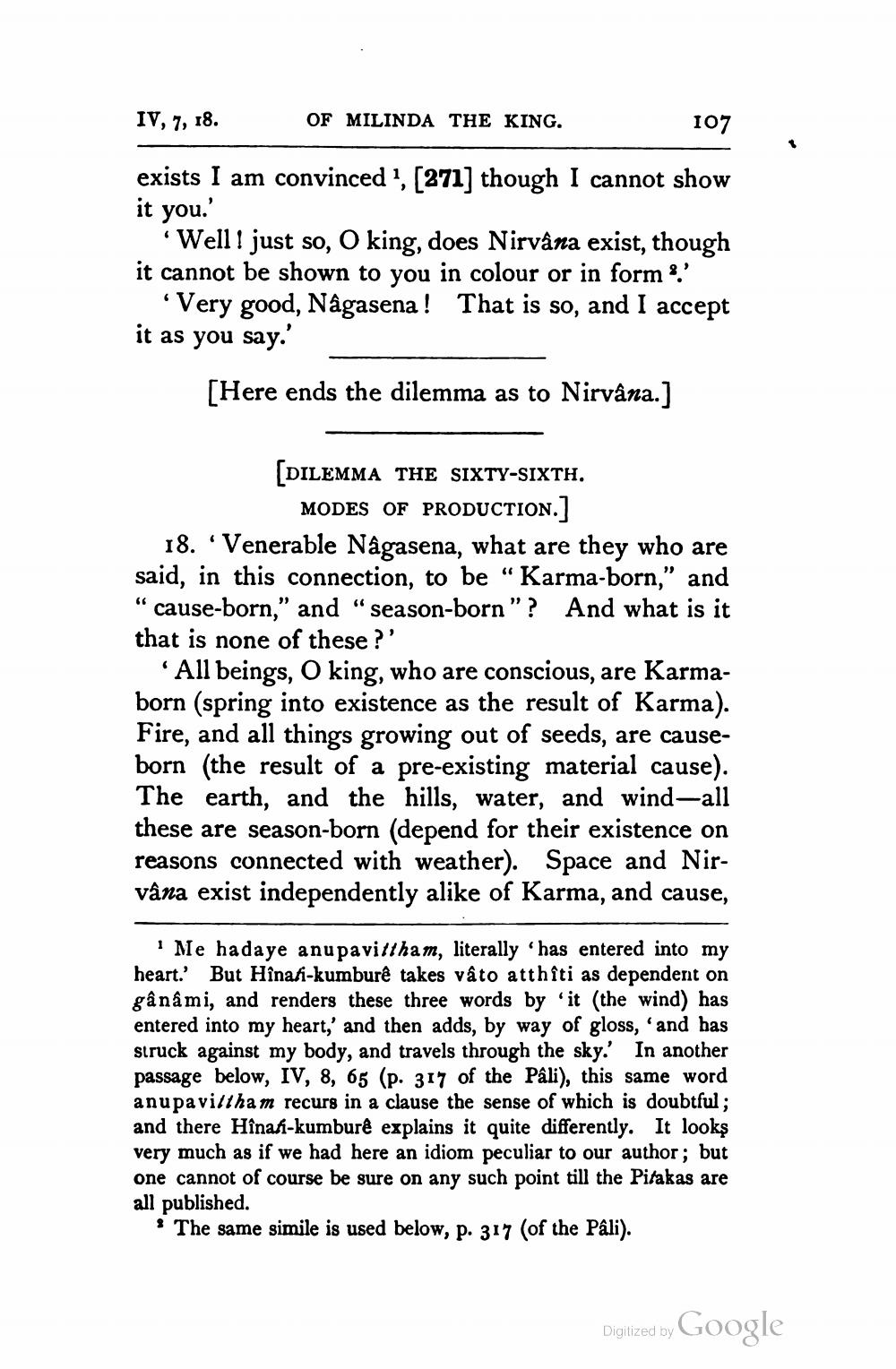________________
IV, 7, 18.
107
exists I am convinced 1, [271] though I cannot show it you.'
'Well! just so, O king, does Nirvâna exist, though it cannot be shown to you in colour or in form '.' 'Very good, Nagasena! That is so, and I accept it as you say.'
[Here ends the dilemma as to Nirvâna.]
OF MILINDA THE KING.
"
[DILEMMA THE SIXTY-SIXTH. MODES OF PRODUCTION.]
"
18. 'Venerable Nâgasena, what are they who are Isaid, in this connection, to be Karma-born," and cause-born," and "season-born"? And what is it that is none of these?'
'All beings, O king, who are conscious, are Karmaborn (spring into existence as the result of Karma). Fire, and all things growing out of seeds, are causeborn (the result of a pre-existing material cause). The earth, and the hills, water, and wind-all these are season-born (depend for their existence on reasons connected with weather). Space and Nirvâna exist independently alike of Karma, and cause,
Me hadaye anupavittham, literally has entered into my heart.' But Hînafi-kumburê takes vâto atthîti as dependent on gânâmi, and renders these three words by 'it (the wind) has entered into my heart,' and then adds, by way of gloss, and has struck against my body, and travels through the sky.' In another passage below, IV, 8, 65 (p. 317 of the Pâli), this same word anupaviltham recurs in a clause the sense of which is doubtful; and there Hînafi-kumburê explains it quite differently. It looks very much as if we had here an idiom peculiar to our author; but one cannot of course be sure on any such point till the Pirakas are all published.
The same simile is used below, p. 317 (of the Pâli).
Google
Digitized by




